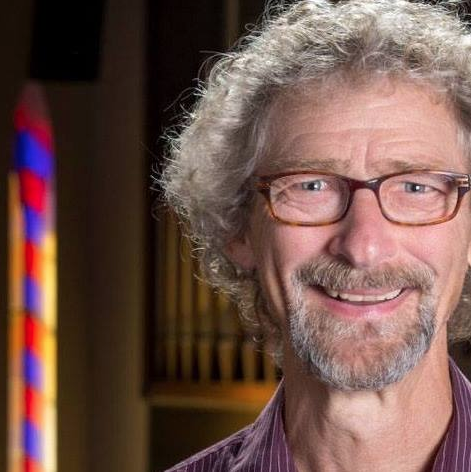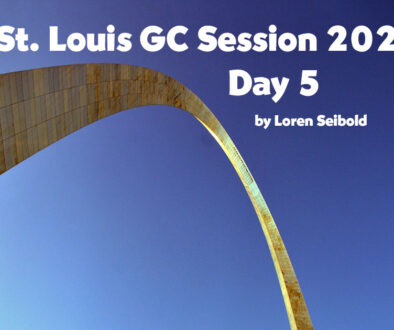Wrench Ministers
by John McLarty | 8 June 2019 |
On the second day of our trip to the desert the air conditioner in the car quit working. Karin said, “We cannot do this trip without air conditioning!”
It was Friday. We were in northern Utah driving south toward St. George where our tour started on Sunday. What to do?
While I drove, Karin called a friend of a friend who has lived in St. George for a long time. Could he recommend a mechanic that might be able to fix our air conditioning? He gave us the number for Redlands Auto Repair. Karin called the mechanic and explained our problem. I could manage the tour on Monday without the truck—was there a chance they could they could work us in?
When I dropped the truck off on Monday morning, and talked with the owner, Dan, I realized he was the same mechanic who had rescued me on a previous trip, in a different vehicle.
Sure enough, before lunch, he called and said the truck was ready go.
Saved!
That’s what mechanics do. They save vacations. When you take very old vehicles on very long road trips, it is not uncommon to need some assistance. And over the years I’ve developed a profound appreciation for the skill and willingness of auto mechanics. I think of them as ministers and imagine wrenches as the symbol of their craft (though, in today’s world, a computer might be an even more relevant symbol).
Wrench Ministers
In the Adventist Church we have long honored the work of teachers and health professionals as authentic ministry. The work of healing and teaching is no less “Christian,” no less an expression of the mission of Jesus and his church than is the ministry of preaching and praying.
One of our prophet’s books is titled Ministry of Healing. I’d like to write a new book titled Ministry of Auto Repair or more simply, Ministry of Wrenches.
On our Talking Rocks tour, we spent time considering the grand questions of theology–God, nature, prayer, spiritual life, cosmology, philosophy of science. It was church in the wilderness. But we needed our cars to get there. And people like Dan make cars work so we can venture out into the wild places and hold our deep conversations.
Over the years I’ve broken down on the road a number of times. I’ve been touched by the willingness of mechanics to set aside more routine work and deal with my emergency and get me back on the road. It’s what they do. I honor them for it.
The ministry of wrenches. A beautiful model of godliness.
Ordinary Goodness
Exodus 23:1-9 gives us a list of rules for righteous living. Notice how earthy they are. The heart of our religion is not complicated, abstract theories about the nature of the universe and the hidden activity of God. The core of our faith is devotion to simple, concrete goodness.
- You must not pass along false rumors. Facebook? Political accusations? Theological accusations? Just this week, a friend from a church far away from here emailed me about a problem in their church. The pastor had chosen a book for their small group discussion. Someone in the church “had heard” that the author of the book had some unacceptable ideas. On their face, the accusations were highly unlikely. When I asked about their source, it turns out the person spreading the accusations was a collector of heresy rumors. They did not bother to verify them. It was so satisfying to whisper the rumor. Do do that.
- You must not cooperate with evil people by lying on the witness stand.
- You must not follow the crowd in doing wrong.
- When you are called to testify in a dispute, do not be swayed by the crowd to twist justice.
- Do not slant your testimony in favor of a person just because that person is poor. Even if your motive is good don’t bend the truth. Facts matter.
- If you come upon your enemy’s ox or donkey that has strayed away, take it back to its owner.
- If you see that the donkey of someone who hates you has collapsed under its load, do not walk by. Instead, stop and help. In other words, do the right thing because it’s the right thing.
- In a lawsuit, you must not deny justice to the poor. Earlier, we were reminded to tell the truth. Don’t bend the facts out of “compassion.” On the other hand, beware of the power of wealth to skew public justice. Legal outcomes should be based on justice, not how much money one has to employ legal counsel.
- Be sure never to charge anyone falsely with evil. Never sentence an innocent or blameless person to death, for I never declare a guilty person to be innocent.
- You must not oppress foreigners. You know what it’s like to be a foreigner, for you yourselves were once foreigners in the land of Egypt. Nearly all of us have been in trouble sometime and needed help. Remember that when confronted with human need. We cannot meet every human need. But we can remember that neediness is part of the human condition—part of our human condition when we are responding to needy people. Like Seattle, Salt Lake City has a large population of street people. In the part of town where my daughter lives, addicts are plainly visible. Desperate people are on the sidewalks. My first reaction was disgust. Come on, people, get your life together! Then I remembered my highway emergencies. The only way I could get my life together was with the very substantial help of skilled professionals. Maybe some of these street people fit in that same category.
Do the Right Thing
Jesus’ counsel in Matthew 6:1-8 fits in nicely with this idea of doing the right thing because it is right.
- When you give to someone in need, don’t let your left hand know what your right hand is doing. Give your gifts in private, and your Father, who sees everything, will reward you.
- When you pray, go away by yourself, shut the door behind you, and pray to your Father in private. Then your Father, who sees everything, will reward you. When you pray, don’t babble on and on as people of other religions do. They think their prayers are answered merely by repeating their words again and again. Don’t be like them, for your Father knows exactly what you need even before you ask him!
After our tour we drove east to Kansas for our oldest daughter’s graduation. We had a grand time. Then we helped her with her house. She had just a couple of weeks earlier gotten some water in her basement for the first time in all the time she had lived there. So, I got busy addressing drainage issues on the property. Her kitchen cabinets badly needed attention, so Karin worked on restoring them. We spent several days working on the house–why? Because that’s what parents do.
We see needs in our kids lives and we take action.
Jesus used this kind of instinctive parental action as a picture of God. When we pray, we expect God to hear because that’s what a good father does. When we are in trouble we expect help from God because we’ve always counted on Mom.
What is God like? God is like a responsive, capable mother or father.
That is the consistent, explicit teaching of Jesus.
What does it mean to live godly lives? What does holiness and righteousness look like? Performing ordinary acts of goodness. Like the goodness described in our Old Testament passage. Like the goodness practice by auto mechanics who respond to travelers in trouble.
All of us have skills we can use to ease another person’s emergency.
Let’s be like God.

John McLarty is senior pastor at Green Lake Church in Seattle and host of Talking Rocks Geology Tours, camping trips in the American Southwest.




